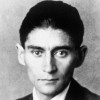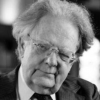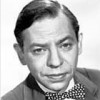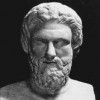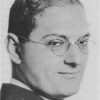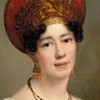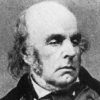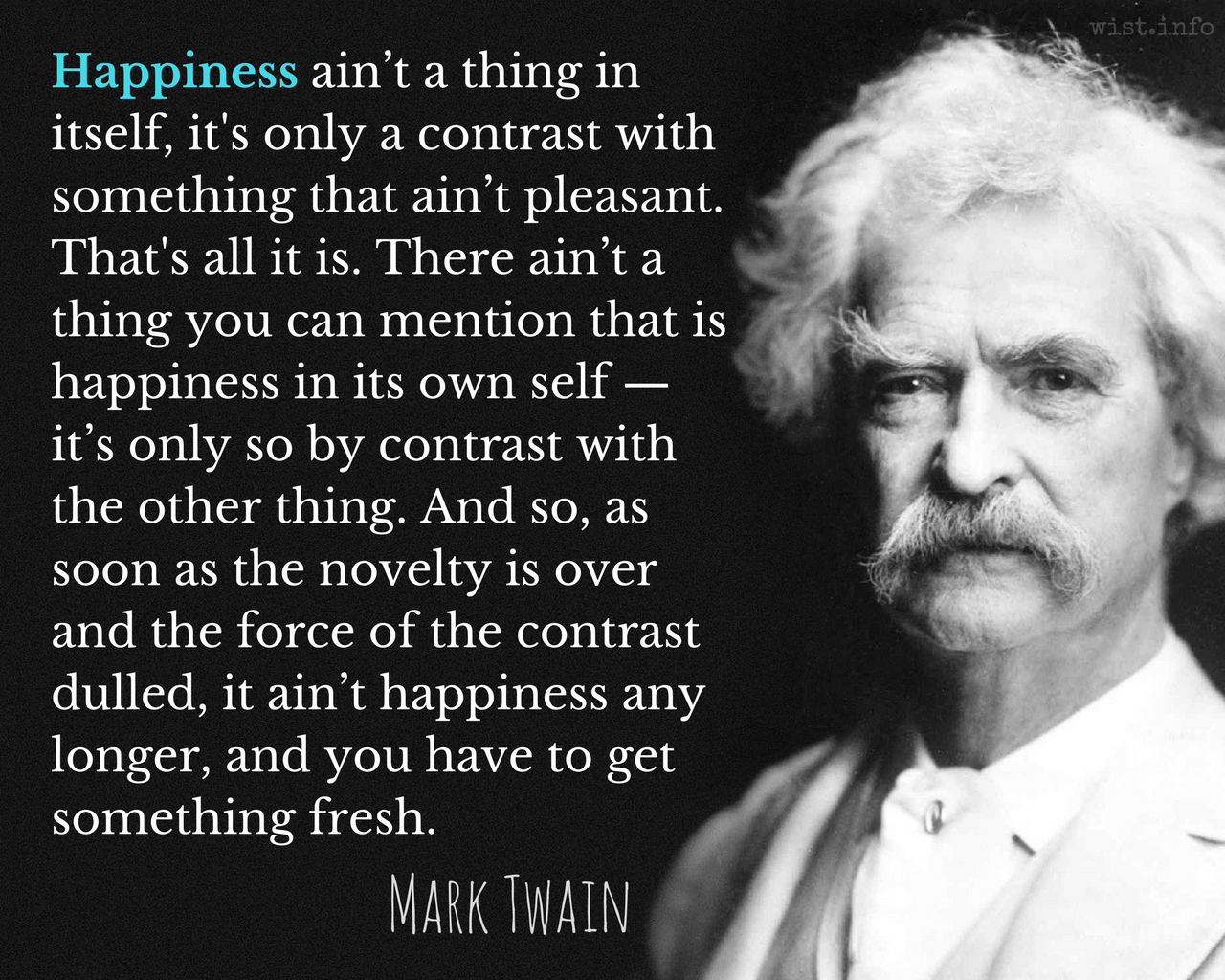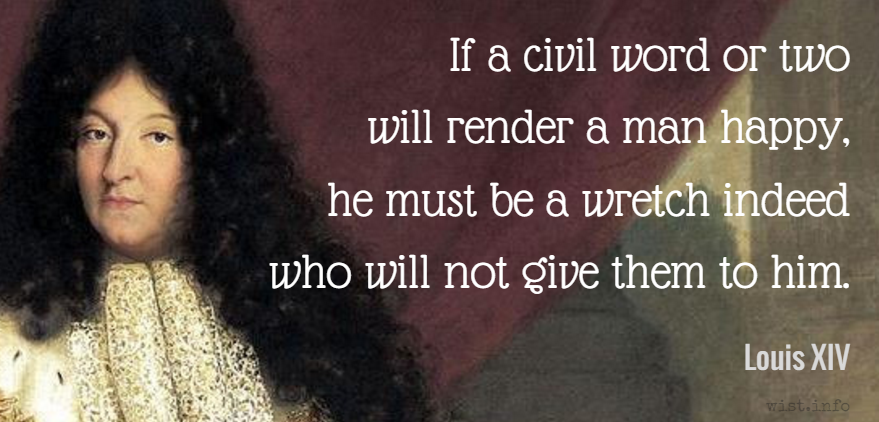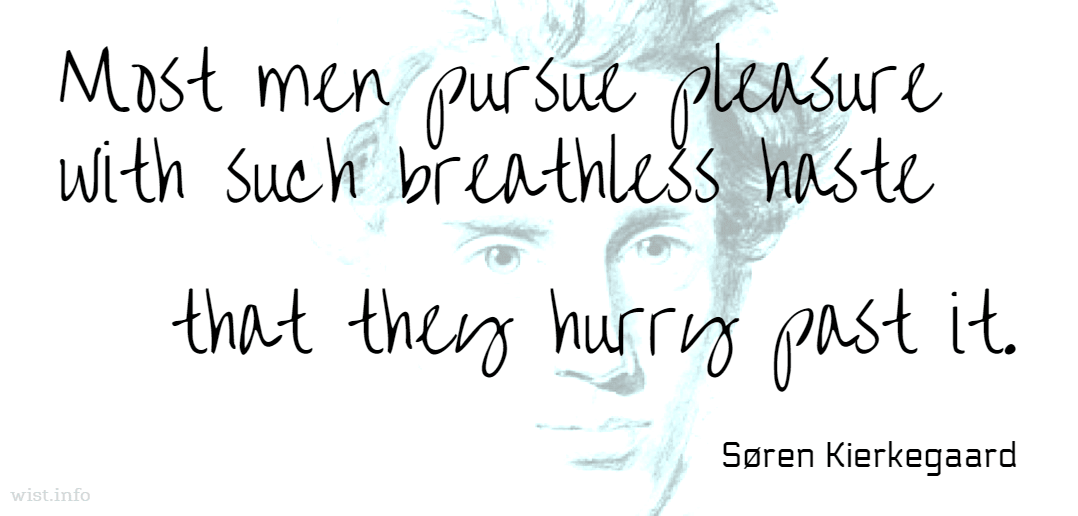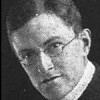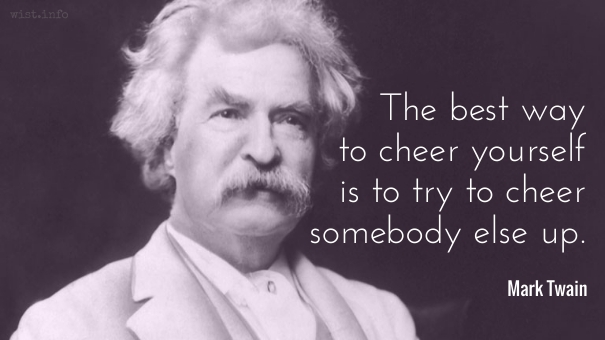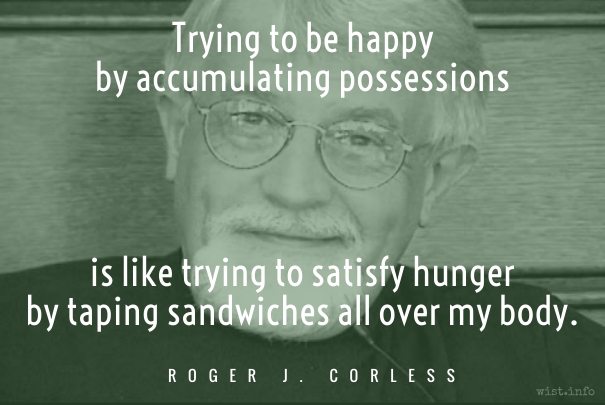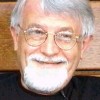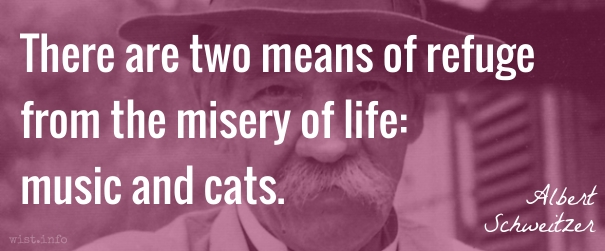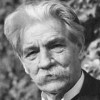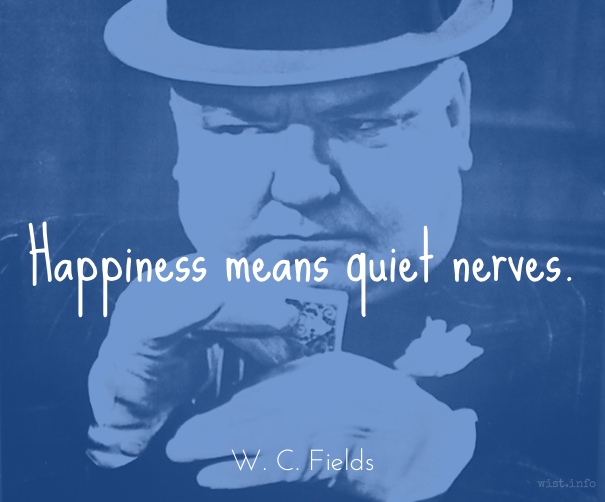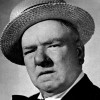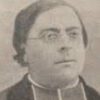Of all forms of caution, caution in love is perhaps the most fatal to true happiness.
Bertrand Russell (1872-1970) English mathematician and philosopher
The Conquest of Happiness, ch. 12 (1930)
(Source)
Quotations about:
happiness
Note not all quotations have been tagged, so Search may find additional quotes on this topic.
A great part of the happiness of life consists not in fighting battles but in avoiding them. A masterly retreat is in itself a victory.
To laugh often and much; to win the respect of intelligent people and the affection of children; to earn the appreciation of honest critics and endure the betrayal of false friends; to appreciate beauty, to find the best in others; to leave the world a bit better, whether by a healthy child, a garden patch, or a redeemed social condition, to know even one life has breathed easier because you have lived. This is to have succeeded.
Ralph Waldo Emerson (1803-1882) American essayist, lecturer, poet
(Misattributed)
This is regularly attributed to Emerson, but has not been found in his work. The original appears to be a contest essay written by Bessie A. Stanley of Lincoln, Nebraska in 1905:
He has achieved success who has lived well, laughed often and loved much; who has gained the respect of intelligent men and the love of little children; who has filled his niche and accomplished his task; who has left the world better than he found it, whether by an improved poppy, a perfect poem, or a rescued soul; who has never lacked appreciation of earth’s beauty or failed to express it; who has always looked for the best in others and given the best he had; whose life was an inspiration; whose memory a benediction.
In 1951, Albert E. Wiggam, a newspaper columnist, wrote this similar passage, claiming it was an abridged version of something Emerson wrote:
To laugh often and love much; to win the respect of intelligent persons and the affection of children; to earn the approbation of honest critics and endure the betrayal of false friends; to appreciate beauty. To find the best in others; to give one’s self; to leave the world a bit better, whether by a healthy child, a garden patch or a redeemed social condition; to have played and laughed with enthusiasm and sung with exaltation; to know even one life has breathed easier because you have lived -- this is to have succeeded.
Variations of both quotations exist, but Wiggam seems to be the source of the Emerson reference. This was later cemented by Ann Landers producing the variation at the top of this post, citing Emerson but not Wiggam. She also at other times attributed it to Harry Emerson Fosdick and Bessie A. Stanley.
More information here:
Happiness does not come from doing easy work but from the afterglow of satisfaction that comes after the achievement of a difficult task that demanded our best.
Wilferd A. Peterson (1900-1995) American writer, magazine editor
“The Art of Happiness,” This Week Magazine (1961-02-04)
(Source)
Collected in The Art of Living (1961).
Almost universally credited, without citation, to Theodore Isaac Rubin, but I've been unable to find the phrase in Rubin's works or credited to him earlier than Peterson's essay.
If you are a person who looks at the funny side of things, then sometimes when you are lowest, when everything seems totally hopeless, you will come up with some of your best ideas. Happiness does not create humor. There’s nothing funny about being happy. Sadness creates humor.
Charles Schulz (1922-2000) American cartoonist
“On Staying Power,” My Life with Charlie Brown (2010) [ed. Inge]
(Source)
Whatever creates or increases happiness or some part of happiness, we ought to do; whatever destroys or hampers happiness, or gives rise to its opposite, we ought not to do.
[τὰ μὲν γὰρ παρασκευάζοντα ταύτην ἢ τῶν μορίων τι, ἢ μεῖζον ἀντ᾽ ἐλάττονος ποιοῦντα, δεῖ πράττειν, τὰ δὲ φθείροντα ἢ ἐμποδίζοντα ἢ τὰ ἐναντία ποιοῦντα μὴ πράττειν.]
Aristotle (384-322 BC) Greek philosopher
Rhetoric [Ῥητορική; Ars Rhetorica], Book 1, ch. 5, sec. 2 (1.5.2) / 1360b.11 (350 BC) [tr. Roberts (1924)]
(Source)
(Source (Greek)). Alternate translations:
For it behoves us to perform those acts which procure [happiness], or any one of its constituent parts, or which, when it is little, render it greater; but not to perform those which destroy, or obstruct it, or produce its contraries.
[Source (1847)]
We needs do the things which procure [happiness] or any of its constituents, or which render it greater from having been less, and refrain from doing the things which destroy or impede it, or produce its opposites.
[tr. Buckley (1850)]
Since we ought to do those things which tend to create [Happiness] or any one of its parts, or to increase that part; but we ought not do those things which corrupt, or hinder it, or produce its opposite.
[tr. Jebb (1873)]
For one should do the things which procure happiness or one of its parts, or increase instead of diminishing it, and avoid doing those things which destroy or hinder it or bring about what is contrary to it.
[tr. Freese (1926)]
After all, we are bound to act in a way that creates the conditions for happiness or one of its constituents, or at any rate increases rather than diminishes it, and to avoid doing things that destroy or hinder it or have outcomes that oppose it.
[tr. Waterfield (2018)]
A society which reverences the attainment of riches as the supreme felicity will naturally be disposed to regard the poor as damned in the next world, if only to justify making their life a hell in this.
R. H. Tawney (1880-1962) English writer, economist, historian, social critic [Richard Henry Tawney]
Religion and the Rise of Capitalism, ch. 4: The Puritan Movement, sec. 4 “The New Medicine for Poverty” (1926)
(Source)
Originally delivered as Holland Lectures, Kings College (Feb-Mar 1922).
For life without life’s joys
Is living death; and such a life is his.
Riches and rank and show of majesty
And state, where no joy is, are empty, vain
And unsubstantial shadows, of no weight
To be compared with happiness of heart.[τὰς γὰρ ἡδονὰς
ὅταν προδῶσιν ἄνδρες, οὐ τίθημ᾽ ἐγὼ
ζῆν τοῦτον, ἀλλ᾽ ἔμψυχον ἡγοῦμαι νεκρόν.
πλούτει τε γὰρ κατ᾽ οἶκον, εἰ βούλει, μέγα
καὶ ζῆ τύραννον σχῆμ᾽ ἔχων: ἐὰν δ᾽ ἀπῇ
τούτων τὸ χαίρειν, τἄλλ᾽ ἐγὼ καπνοῦ σκιᾶς
οὐκ ἂν πριαίμην ἀνδρὶ πρὸς τὴν ἡδονήν]Sophocles (496-406 BC) Greek tragic playwright
Antigone, l. 1165ff [Messenger] (441 BC) [tr. Watling (1947), Epilogos, l. 977ff]
(Source)
Original Greek. Alternate translations:
For him I reckon but
An animate corpse, and not a living man,
Whose life's delights are cast away. Thy house,
I grant thee, may be richly stored with wealth;
And thou may'st live in royal pomp: but if
Joy is not there the while, and I must lose
All happiness thereby, I would not give
Smoke's shadow as the price of all the rest.
[tr. Donaldson (1848)]
For a life
Without life's joys I count a living death.
You'll tell me he has ample store of wealth,
The pomp and circumstance of kings; but if
These give no pleasure, all the rest I count
The shadow of a shade, nor would I weigh
His wealth and power 'gainst a dram of joy.
[tr. Storr (1859)]
For when a man is lost to joy,
I count him not to live, but reckon him
A living corse. Riches belike are his,
Great riches and the appearance of a King;
But if no gladness come to him, all else
Is shadow of a vapour, weighed with joy.
[tr. Campbell (1873)]
When a man has forfeited his pleasures, I do not reckon his existence as life, but consider him just a breathing corpse. Heap up riches in your house, if you wish! Live with a tyrant's pomp! But if there is no joy along with all of that, I would not pay even the shadow of smoke for all the rest, compared with joy.
[tr. Jebb (1891)]
For when a man hath forfeited his pleasures, I count him not as living, -- I hold him but a breathing corpse. Heap up riches in thy house, if thou wilt; live in kingly state; yet, if there be no gladness therewith, I would not give the shadow of a vapour for all the rest, compared with joy.
[tr. Jebb (1917)]
Who can say
That a man is still alive when his life’s joy fails?
He is a walking dead man. Grant him rich,
Let him live like a king in his great house:
If his pleasure is gone, I would not give
So much as the shadow of smoke for all he owns.
[tr. Fitts/Fitzgerald (1939), l. 910ff]
Yes, when a man has lost all happiness,
he's not alive. Call him a breathing corpse.
Be very rich at home. Live as a king.
But once your joy has gone, though these are left
they are smoke's shadow to lost happiness.
[tr. Wyckoff (1954)]
He who forfeits joy
Forfeits his life; he is a breathing corpse.
Heap treasures in your palace, if you will,
And wear the pomp of royalty; but if
You have no happiness, I would not give
A straw for all of it, compared with joy.
[tr. Kitto (1962)]
Believe me,
when a man has squandered his true joys,
he's good as dead, I tell you, a living corpse.
Pile up riches in your house, as much as you like --
live like a king with a huge show of pomp,
but if real delight is missing from the lot,
I wouldn't give you a wisp of smoke for it,
not compared to joy. [tr. Fagles (1982), l. 1284ff]
When every source of joy deserts a man,
I don't call him alive: he's an animated corpse.
For my money, you can get rich as you want,
You can wear the face of a tyrant,
But if you have no joy in this,
Your life's not worth the shadow of a puff of smoke.
[tr. Woodruff (2001)]
Whenever men forfeit their pleasures, I do not regard
such a man as alive, but I consider him a living corpse.
Be very wealthy in your household, if you wish, and live
the style of absolute rulers, but should the enjoyment of these
depart, what is left, compared to pleasure,
I would not buy from a man for a shadow of smoke.
[tr. Tyrell/Bennett (2002)]
When a man’s body has lost all sense of joy, you can say he’s not alive any more. He is a living corpse. You can have as much wealth in your house as you like and you can live like a king but when joy is missing then all those other things I wouldn’t exchange for the price of the shadow of smoke -- not against the sweetness of joy!
[tr. Theodoridis (2004), "Herald"]
For when a man has lost
what gives him pleasure, I don’t include him
among the living -- he’s a breathing corpse.
Pile up a massive fortune in your home,
if that’s what you want -- live like a king.
If there’s no pleasure in it, I’d not give
to any man a vapour’s shadow for it,
not compared to human joy.
[tr. Johnston (2005), l. 1296ff]
But when people lose their pleasures, I do not consider this life -- rather, it is just a corpse with a soul.
[tr. @sentantiq (2018)]
Wisdom is by far the greatest part of joy,
and reverence toward the gods must be safeguarded.
The mighty words of the proud are paid in full
with mighty blows of fate, and at long last
those blows will teach us wisdom.[πολλῷ τὸ φρονεῖν εὐδαιμονίας
πρῶτον ὑπάρχει. χρὴ δὲ τά γ᾽ εἰς θεοὺς
μηδὲν ἀσεπτεῖν. μεγάλοι δὲ λόγοι
μεγάλας πληγὰς τῶν ὑπεραύχων
ἀποτίσαντες
γήρᾳ τὸ φρονεῖν ἐδίδαξαν.]Sophocles (496-406 BC) Greek tragic playwright
Antigone, l. 1348ff [Chorus] (441 BC) [tr. Fagles (1982), l. 1466ff]
(Source)
Final lines of the play. Original Greek. Alternate translations:
Wisdom is first of the gifts of good fortune:
'Tis a duty, to be sure, the rites of the Gods
Duly to honor: but words without measure, the
Fruit of vain-glory, in woes without number their
Recompense finding,
Have lesson'd the agéd in wisdom.
[tr. Donaldson (1848)]
Of happiness the chiefest part
Is a wise heart:
And to defraud the gods in aught
With peril's fraught.
Swelling words of high-flown might
Mightily the gods do smite.
Chastisement for errors past
Wisdom brings to age at last.
[tr. Storr (1859)]
Wise conduct hath command of happiness
Before all else, and piety to Heaven
Must be preserved. High boastings of the proud
Bring sorrow to the height to punish pride: --
A lesson men shall learn when they are old.
[tr. Campbell (1873)]
Wisdom is provided as the chief part of happiness, and our dealings with the gods must be in no way unholy. The great words of arrogant men have to make repayment with great blows, and in old age teach wisdom.
[tr. Jebb (1891)]
Wisdom alone is man's true happiness.
We are not to dispute the will of heaven;
For ever are the boastings of the proud
By the just gods repaid, and man at last
Is taught to fear their anger and be wise.
[tr. Werner (1892)]
Wisdom is the supreme part of happiness; and reverence towards the gods must be inviolate. Great words of prideful men are ever punished with great blows, and, in old age, teach the chastened to be wise.
[tr. Jebb (1917)]
There is no happiness where there is no wisdom;
No wisdom but in submission to the gods.
Big words are always punished
And proud men in old age learn to be wise.
[tr. Fitts/Fitzgerald (1939), l. 1039ff]
Of happiness the crown
And chiefest part
Is wisdom, and to hold
The gods in awe.
This is the law
That, seeing the stricken heart
Of pride brought down,
We learn when we are old.
[tr. Watling (1947), Exodos, l. 1027ff]
Our happiness depends
on wisdom all the way.
The gods must have their due.
Great words by men of pride
bring greater blows upon them.
So wisdom comes to the old.
[tr. Wyckoff (1954)]
Of happiness, far the greatest part is wisdom,
and reverence towards the gods.
Proud words of arrogant man, in the end,
Meet punishment, great as his pride was great,
Till at last he is schooled in wisdom.
[tr. Kitto (1962)]
Wisdom is supreme for a blessed life,
And reference for the gods
Must never cease. Great words, sprung from arrogance.
Are punished by great blows.
So it is one learns, in old age, to be wise.
[tr. Woodruff (2001)]
By far is having sense the first part
of happiness. One must not act impiously toward
what pertains to gods. Big words
of boasting men,
paid for by big blows,
teach having sense in old age.
[tr. Tyrell/Bennett (2002)]
The most important thing in man’s happiness is good judgement and he must not treat with disdain the works of the gods.
The arrogant pay for their big proud words with great downfalls and it’s only then, in their old age that they gain wisdom!
[tr. Theodoridis (2004)]
The most important part of true success
is wisdom -- not to act impiously
towards the gods, for boasts of arrogant men
bring on great blows of punishment --
so in old age men can discover wisdom.
[tr. Johnston (2005)]
Knowledge truly is by far the most important part of happiness, but one must neglect nothing that the gods demand. Great words of the over-proud balanced by great falls taught us knowledge in our old age.
[tr. Thomas (2005)]
Above all, the search after truth and its eager pursuit are peculiar to man. And so, when we have leisure from the demands of business cares, we are eager to see, to hear, to learn something new, and we esteem a desire to know the secrets or wonders of creation as indispensable to a happy life. Thus we come to understand that what is true, simple, and genuine appeals most strongly to a man’s nature.
[In primisque hominis est propria veri inquisitio atque investigatio. Itaque cum sumus necessariis negotiis curisque vacui, tum avemus aliquid videre, audire, addiscere cognitionemque rerum aut occultarum aut admirabilium ad beate vivendum necessarian! ducimus. Ex quo intellegitur, quod verum, simplex sincerumque sit, id esse naturae hominis aptissimum.]
Marcus Tullius Cicero (106-43 BC) Roman orator, statesman, philosopher
De Officiis [On Duties; On Moral Duty; The Offices], Book 1, ch. 4 (1.4) / sec. 13 (44 BC) [tr. Miller (1913)]
(Source)
Original Latin. Alt. trans.:
But of all the properties and inclinations of men, there is none more natural and peculiar to them than an earnest desire and search after truth. Hence it is that our minds are no sooner free from the thoughts and engagements of necessary business, but we presently long to be either seeing, or hearing, or learning of something; and esteem the knowledge of things secret and wonderful as a necessary ingredient of a happy life. Whence it appears that nothing is more agreeable and suited to the nature and minds of men than undisguised openness, truth, and sincerity.
[tr. Cockman (1699)]
The desire and investigation of truth is proper to man. When disengaged from necessary business and cares, we are eager to add to our knowledge by examining for ourselves or listening to others. The discovery of what is secret or wonderful, we are disposed to conceive essential to happiness. Hence, what is true, simple, and undisguised, is best adapted to human nature.
[tr. McCartney (1798)]
Before all other things, man is distinguished by his pursuit and investigation of TRUTH. And hence, when free from needful business and cares, we delight to see, to hear, and to communicate, and consider a knowledge of many admirable and abstruse things necessary to the good conduct and happiness of our lives: whence it is clear that whatsoever is TRUE, simple, and direct, the same is most congenial to our nature as men.
[In John Frederick William Herschel, A Preliminary Discourse on the Study of Natural Philosophy, Epigraph (1830)]
The distinguishing property of man is to search for and to follow after truth. Therefore, when relaxed from our necessary cares and concerns, we then covet to see, to hear, and to learn somewhat; and we esteem knowledge of things either obscure or wonderful to be the indispensable means of living happily. From this we understand that truth, simplicity, and candour, are most agreeable to the nature of mankind.
[tr. Edmonds (1865)]
The research and investigation of truth, also, are a special property of man. Thus, when we are free from necessary occupations, we want to see, or hear, or learn something, and regard the knowledge of things either secret or wonderful as essential to our living happily and well.
[tr. Peabody (1883)]
The distinctive faculty of man is his eager desire to investigate the truth. Thus, when free from pressing duties and cares, we are eager to see or hear, or learn something new, and we think our happiness is incomplete unless we study the mysteries and the marvels of the universe.
[tr. Gardiner (1899)]
The first duty of man is the seeking after and the investigation of truth.
[ed. Harbottle (1906)
Inquiry into and searching for truth are primary characteristics of mankind. So when we are free from business obligations and other preoccupations, we become eager to see something new, to hear and learn something; we begin to think that knowledge about the mysteries and wonders of the world is necessary to a happy life.
[tr. Edinger (1974)]
There is no happiness in life, there is no misery, like that growing out of the dispositions which consecrate or desecrate a home.
Youth is full of sunshine and life. Youth is happy, because it has the ability to see beauty. When this ability is lost, wretched old age begins, decay, unhappiness. […] Anyone who keeps the ability to see beauty never grows old.
Dreams, books, are each a world; and books we know,
Are a substantial world, both pure and good:
Round these, with tendrils strong as flesh and blood,
Our pastime and our happiness will grow.
Beauty, like truth and goodness, is a quality that may in one sense be predicated of all great art, but the deliberate attempt to beautify can, in itself, only weaken the creative energy. Beauty in art is like happiness in morals: it may accompany the act, but it cannot be the goal of the act, just as one cannot “pursue happiness,” but only something else that may give happiness.
Northrop Frye (1912-1991) Canadian literary critic and literary theorist
Anatomy of Criticism, “Mythical Phase: Symbol as Archetype” (1957)
(Source)
He who tries to be holy in order to be happy will assuredly be neither.
William Ralph Inge (1860-1954) English prelate [Dean Inge]
Christian Mysticism, Lecture 1 (1899)
(Source)
If you have any young friends who aspire to become writers, the second greatest favor you can do them is to present them with copies of The Elements of Style. The first greatest, of course, is to shoot them now, while they’re happy.
Dorothy Parker (1893-1967) American writer
“Book Reviews,” Esquire (1 Nov 1959)
(Source)
Review of William Strunk Jr and E. B. White, The Elements of Style, revised edition.
DEMOSTHENES: And dare you rail at wine’s inventiveness?
I tell you nothing has such go as wine.
Why, look you now; ’tis when men drink, they thrive,
Grow wealthy, speed their business, win their suits,
Make themselves happy, benefit their friends.
Go, fetch me out a stoup of wine, and let me
Moisten my wits, and utter something bright.Aristophanes (c. 450-c. 388 BC) Athenian comedic playwright
Knights, ll. 90-96 [tr. Rogers (1924)]
(Source)
Alt. trans.
- [O'Neill (1938)]: "Do you dare to accuse wine of clouding the reason? Quote me more marvellous effects than those of wine. Look! when a man drinks, he is rich, everything he touches succeeds, he gains lawsuits, is happy and helps his friends. Come, bring hither quick a flagon of wine, that I may soak my brain and get an ingenious idea."
- [Hickie (1853)]: "Have you the audacity to abuse wine for witlessness? Can you find anything more business-like than wine? Do you see? when men drink, then they are rich, they transact business, gain causes, are happy, assist their friends. Come, bring me out quickly a stoup of wine, that I may moisten my intellect, and say something clever."
If you said to a bunch of average people two hundred years ago “Would you be happy in a world where medical care is widely available, houses are clean, the world’s music and sights and foods can be brought into your home at small cost, travelling even 100 miles is easy, childbirth is generally not fatal to mother or child, you don’t have to die of dental abcesses and you don’t have to do what the squire tells you” they’d think you were talking about the New Jerusalem and say ‘yes’.
Terry Pratchett (1948-2015) English author
(Attributed)
Usually cited to alt.fan.pratchett, but not found in the repository.
I got rhythm, I got music,
I got my man
Who could ask for anything more?Ira Gershwin (1896-1983) American lyricist [b. Israel Gershowitz]
“I Got Rhythm”, Girl Crazy, Act 1 (1930)
(Source)
But also I say this: that light
is an invitation
to happiness,
and that happiness,
when it’s done right,
is a kind of holiness,
palpable and redemptive.
Nevertheless even here, when a man bears patiently a number of heavy disasters, not because he does not feel them but because he has a high and generous nature, his nobility shines through. And if, as we said, the quality of a life is determined by its activities, no man who is truly happy can become miserable; because he will never do things that are hateful and mean.
[ὅμως δὲ καὶ ἐν τούτοις διαλάμπει τὸ καλόν, ἐπειδὰν φέρῃ τις εὐκόλως πολλὰς καὶ μεγάλας ἀτυχίας, μὴ δι᾽ ἀναλγησίαν, ἀλλὰ γεννάδας ὢν καὶ μεγαλόψυχος. εἰ δ᾽ εἰσὶν αἱ ἐνέργειαι κύριαι τῆς ζωῆς, καθάπερ εἴπομεν, οὐδεὶς ἂν γένοιτο τῶν μακαρίων ἄθλιος: οὐδέποτε γὰρ πράξει τὰ μισητὰ καὶ τὰ φαῦλα.]
Aristotle (384-322 BC) Greek philosopher
Nicomachean Ethics [Ἠθικὰ Νικομάχεια], Book 1, ch. 11 (1.11) / 1100b.30-35 (c. 325 BC) [tr. Thomson/Tredennick (1976)]
(Source)
(Source (Greek))
Often highly paraphrased: "Suffering becomes beautiful when anyone bears great calamities with cheerfulness, not through insensibility but through greatness of mind."
Alternate translations:
But nevertheless, even in these, nobility of the soul is conspicuous, when a man bears and digests many and great misfortunes, not from insensibility, but because he is high spirited and magnanimous. But if the energies are the things that constitute the bliss or the misery of life, as we said, no happy man can ever become miserable, for he will never do hateful and worthless actions.
[tr. Vincent (1835)]
But still, even in these, nobleness shines through when a man bears contentedly many and great mischances not from insensibility to pain but because he is noble and high-spirited. And if, as we have said, the acts of working are what determine the character of the life, no one of the blessed can ever become wretched, because he will never do those things which are hateful and mean.
[tr. Chase (1847)]
But nevertheless even here true nobility sines out, when a man bears calmly man and great mishaps, not through dullness of feeling, but from true high-breeding, and greatness of spirit. And since, as we have said, it is our own acts that determine our life, no one of the really blessed can ever become wretched, for he will never do hateful and disgraceful deeds.
[tr. Williams (1869), sec. 17]
Still even in these circumstances nobility shines out, when a person bears the weight of accumulated misfortunes with calmness, not from insensibility but from innate dignity and magnanimity. But if it is the activities which determine the life, as we said, nobody who is fortunate can become miserable; for he will never do what is hateful and mean.
[tr. Welldon (1892)]
But nevertheless true worth shines out even here, in the calm endurance of many great misfortunes, not through insensibility, but through nobility and greatness of soul. And if it is what a man does that determines the character of his life, as we said, then no happy man will become miserable; for he will never do what is hateful and base. [tr. Peters (1893), 1.10.13]
Nevertheless even under these the force of nobility shines out, when a man bears calmly many great disasters, not from insensibility, but because he is generous and of a great soul. Setting happiness then, as we do, not in the outward surroundings of man, but in his inward state, we may fairly say that no one who has attained to the bliss of virtue will ever justly become an object of pity or contempt: for he will never do things that are hateful and vile.
[tr. Stock (1897)]
Yet even in these nobility shines through, when a man bears with resignation many great misfortunes, not through insensibility to pain but through nobility and greatness of soul. If activities are, as we said, what gives life its character, no happy man can become miserable; for he will never do the acts that are hateful and mean.
[tr. Ross (1908), 1.10]
Yet nevertheless even in adversity nobility shines through, when a man endures repeated and severe misfortune with patience, not owing to insensibility but from generosity and greatness of soul. And if, as we said, a man's life is determined by his activities, no supremely happy man can ever become miserable. For he will never do hateful or base actions.
[tr. Rackham (1934), 1.10.12-13]
All the same, even in these cases nobility shines through when someone calmly bears repeated strokes of great bad luck -- not because he is insensitive to suffering but because of being well bred and great-souled. And if it is activities that control living, as we said, no blessed person will ever become wretched, since he will never do hateful or base actions.
[tr. Reeve (1948)]
The beauty of the soul shines out when a man bears with composure one heavy mischance after another, not because he does not feel them, but because he is a man of high and heroic temper. Besides, if it be true, as I affirmed, that the quality of life is determined by its activities, it is impossible for the entirely happy man to become miserable. For he will never be guilty of base or detestable actions.
[tr. Thomson (1953)]
Yet nobility shines out even there, when a man bears many and great misfortunes with calm and ease, not through insensibility to pain, but through nobility of character and highmindedness. Thus if it is the activities that play a dominant role in life, as we have said, no blessed man can become wretched; for he will never do what is hateful or bad.
[tr. Apostle (1975)]
And yet, even here, what is fine shines through, whenever someone bears many severe misfortunes with good temper, not because he feels no distress, but because he is noble and magnanimous. And since it is activities that control life, as we said, no blessed person could ever become miserable, since he will never do hateful and base actions.
[tr. Irwin/Fine (1995)]
What is noble shines through, when a person calmly bears many great misfortunes, not through insensibility, but by being well bred and great-souled. If activities are, as we have said, what really matter in life, no one blessed could become wretched, since he will never do hateful and petty actions.
[tr. Crisp (2000)]
Nevertheless, even in the midst of these, nobility shines through, whenever someone bears up calmly under many great misfortunes, not because of any insensitivity to pain but because he is wellbore and great souled. And if the activities have authoritative control over life, just as we said, then no one who is blessed would become wretched, since he will never do things that are hateful and base.
[tr. Bartlett/Collins (2011)]
Still, nobility shines bright even in tough times, when someone bears even many severe misfortunes patiently, not because they cannot sense them, but because of their unselfishness and greatness of spirit. If the actions one takes rules their life -- as we just said -- then none of the happy people can ever be miserable.
[tr. @sentantiq (2020)]
But all the same, even in these instances, nobility shines through whenever someone good-naturedly bears a multitude of great misfortunes, and does so not because he's numb to pain, but because he's noble and great-souled.
[tr. Benn (2021)]
For one swallow does not make spring, nor does one fine day; and similarly one day or a brief period of happiness does not make a man supremely blessed and happy.
[μία γὰρ χελιδὼν ἔαρ οὐ ποιεῖ, οὐδὲ μία ἡμέρα: οὕτω δὲ οὐδὲ μακάριον καὶ εὐδαίμονα]
Aristotle (384-322 BC) Greek philosopher
Nicomachean Ethics [Ἠθικὰ Νικομάχεια], Book 1, ch. 7 (1.7, 1098a.18) (c. 325 BC) [tr. Rackham (1934)]
(Source)
Rackham notes that μακάριος ("blessed"/"happy") derives from μάκαρ, applied in Homer and Hesiod to the gods, and to humans admitted to the Islands of the Blessed. (Source (Greek)). Alternate translations:
For as it is not one swallow or one fine day that makes a spring, so it is not one day or a short time that makes a man blessed and happy.
[tr. Chase (1847)]
For a single day, or even a short period of happiness, no more makes a blessed and a happy man than one sunny day or one swallow makes a spring.
[tr. Williams (1869)]
For as one swallow or one day does not make a spring, so one day or a short time does not make a fortunate or happy man.
[tr. Welldon (1892), ch. 6]
For one swallow or one fine day does not make a spring, nor does one day or any small space of time make a blessed or happy man.
[tr. Peters (1893), 1.7.16]
For one swallow does not make a summer, nor does one day; and so too one day, or a short time, does not make a man blessed and happy.
[tr. Ross (1908)]
For one swallow does not make a spring, nor does one day. Nor, similarly, does one day or a short time make someone blessed and happy.
[tr. Reeve (1948)]
One swallow does not make a summer; neither does one fine day. And one day, or indeed any brief period of felicity, does not make a man entirely and perfectly happy.
[tr. Thomson (1953)]
For one swallow does not make a spring, nor does one day; and so too one day or a short time does not make a man blessed or happy.
[tr. Apostle (1975)]
One swallow does not make a summer; neither does one day. Similarly neither can one day, or a brief space of time, make a man blessed and happy.
[tr. Thomson/Tredennick (1976)]
For one swallow does not make a summer, nor one day. Neither does one day or a short time make someone blessed and happy.
[tr. Crisp (2000)]
For one swallow does not make a spring, nor does one day. And in this way, one day or a short time does not make someone blessed and happy either.
[tr. Bartlett/Collins (2011)]
For one swallow does not make a spring, nor does one day. Nor, similarly, does one day or a short time make someone blessed and happy.
[tr. Reeve (2014)]
“Christmas a humbug, uncle!” said Scrooge’s nephew. “You don’t mean that, I am sure.”
“I do,” said Scrooge. “Merry Christmas! What right have you to be merry? What reason have you to be merry? You’re poor enough.”
“Come, then,” returned the nephew gaily. “What right have you to be dismal? What reason have you to be morose? You’re rich enough.”
Scrooge having no better answer ready on the spur of the moment, said “Bah!” again; and followed it up with “Humbug.”
Charles Dickens (1812-1870) English writer and social critic
A Christmas Carol, ch. 1 (1843)
(Source)
A good man can expand his life: he lives
twice over whose past life can be enjoyed.[Ampliat ætatis spatium sibi vir bonus. Hoc est
Vivere bis, vita posse priore frui.]Martial (AD c.39-c.103) Spanish Roman poet, satirist, epigrammatist [Marcus Valerius Martialis]
Epigrams [Epigrammata], Book 10, epigram 23 (10.23.8-9) (AD 95, 98 ed.) [tr. McLean (2014)]
"To Antonius Primus." (Source (Latin)). Alternate translations:
Thus good men to themselves long life can give,
T' enjoy our former life is twice to live.
[tr. May (1629)]
Each must, in vertue, strive for to excell;
That man lives twice, that lives the first life well.
[tr. Herrick (1648)]
He liveth twice, who can the Gift retain
Of Mem'ry, to enjoy past Life again.
[tr. Cotton (1685)]
Thus a good man prolongs his mortal date;
Lives twice, enjoying thus his former slate.
[tr. Hay (1755)]
For he lives twice who can at once employ
The present well, and e'en the past enjoy.
[tr. Pope (1713)]
They stretch the limits of this narrow span;
And, by enjoying, live past life again.
[tr. Lewis (1750)]
A good man amplifies the span of his existence ; for this is to live twice, to be able to find enjoyment in past life.
[tr. Amos (1858); he gives several other contemporary uses and translations.]
A good man lengthens his term of existence; to be able to enjoy our past life is to live twice.
[tr. Bohn's Classical (1859)]
So good men lengthen life; and to recall
The past, is to have twice enjoyed it all.
[tr. Stevenson (c. 1883)]
The good man prolongs his life; to be able to enjoy one's past life is to live twice.
[Bartlett's (1891)]
A good man has a double span of life,
For to enjoy past life is twice to live.
[ed. Harbottle (1897)]
A good man widens for himself his age's span; he lives twice who can find delight in life bygone.
[tr. Ker (1919)]
Redoubled happiness and life hath he
Whose joy doth live again in memory.
[tr. Pott & Wright (1921)]
The good man lengthens out his earthly skein,
For living in the past is life again.
[tr. Francis & Tatum (1924), #525]
A good man's life is doubly long,
For he lives twice who, day and night,
Can in his whole past take delight.
[tr. Marcellino (1968)]
Virtue extends our days: he lives two lives who relives his past with pleasure.
[Bartlett's (1968)]
A good man enlarges for himself his span of life. To be able to enjoy former life is to live twice over.
[tr. Shackleton Bailey (1993)]
The good man has no ugly past he would forget,
So memory gives him doubled life without regret.
[tr. Ericsson (1995)]
He does not deplore life's brevity.
For virtue is itself longevity.
[tr. Wills (2007)]
When I remember,
success, failure,
friend, enemy,
wife, lover
I live twice over.
[tr. Kennelly (2008), "Living"]
A good man can expand his life: he lives
twice over whose past life can be enjoyed.
[tr. McLean (2014)]
The good man broadens for himself the span of his years: to be able to enjoy the life you have spent, is to live it twice.
[tr. Nisbet (2015)]
Life is not living, but living in health.
[Vita non est vivere, sed valere vita est.]
Martial (AD c.39-c.103) Spanish Roman poet, satirist, epigrammatist [Marcus Valerius Martialis]
Epigrams [Epigrammata], Book 6, epigram 70 (6.70.15) (AD 91) [tr. Ker (1919)]
(Source)
(Source (Latin)). Alternate translations:
It is not life to live, but to be well.
[tr. Burton (1621)]
Not all who live long, but happily, are old.
[tr. Killigrew (1695)]
For sense and reason tell,
That life is only life, when we are well.
[tr. Hay (1755)]
For life is not to live, but to be well.
[tr. Johnson, in The Rambler, #48, cited to Elphinston (1 Sep 1750)]
To brethe can just not dying give:
But, to be well, must be to live.
[tr. Elphinston (1782), 2.115]
For life is not simply living, but living in health.
[tr. Amos (1858)]
Life consists not in living, but in enjoying health.
[tr. Bohn's Classical (1859)]
It is not life to live, but to be well.
[ed. Harbottle (1897)]
The blunderer who deems them so,
Misreckons life and much mistakes it,
He thinks 'tis drawing breath -- we know
'Tis health alone that mars or makes it.
[tr. Pott & Wright (1921)]
Life is not life, but health is life indeed.
[tr. Francis & Tatum (1924), #310]
To live is not just life, but health.
[tr. Shepherd (1987)]
Life is not being alive, but being well.
[tr. Shackleton Bailey (1993)]
How easy it is to be amiable in the midst of happiness and success!
Anne Sophie Swetchine (1782-1857) Russian-French author and salonist [Madame Swetchine]
Life and Letters of Madam Swetchine, ch. 5 [8th ed., 1875] (ed. de Falloux; tr. Preston]
(Source)
I am all for the short and merry life.
Edward FitzGerald (1809-1883) English writer, poet, translator
Letter to Frederick Tennyson (31 Dec 1850)
(Source)
Later his epitaph.
A good martini, a good meal, a good cigar and a good woman … or a bad woman, depending on how much happiness you can stand.
George Burns (1896-1996) American comedian
Dr. Burns’ Prescription for Happiness, “Nine Definitions of Happiness” (1984)
(Source)
You’ve got to rattle your cage door. You’ve got to let them know that you’re in there, and that you want out. Make noise. Cause trouble. You may not win right away, but you’ll sure have a lot more fun.
Florynce "Flo" Kennedy (1916-2000) American lawyer, feminist, civil rights activist
(Attributed)
(Source)
Quoted in Gloria Steinem, "The Verbal Karate of Florynce R. Kennedy, Esq.," Ms. (Mar 1973).
I believe that happiness consists in having a destiny in keeping with our abilities. Our desires are things of the moment, often harmful even to ourselves; but our abilities are permanent, and their demands never cease.
Germaine de Staël (1766-1817) Swiss-French writer, woman of letters, critic, salonist [Anne Louise Germaine de Staël-Holstein, Madame de Staël, Madame Necker]
Reflections on Suicide (1813)
(Source)
Happiness ain’t a thing in itself, it’s only a contrast with something that ain’t pleasant. That’s all it is. There ain’t a thing you can mention that is happiness in its own self — it’s only so by contrast with the other thing. And so, as soon as the novelty is over and the force of the contrast dulled, it ain’t happiness any longer, and you have to get something fresh.
If a civil word or two will render a man happy, he must be a wretch indeed who will not give them to him.
Louis XIV (1638-1715) French monarch (1643-1715) [Louis the Great, the Sun King)
(Attributed)
(Source)
Quoted in William Seward, Anecdotes of Distinguished Persons, Vol 4, 5th ed. (1804).
No one can be happy in eternal solitude.
Anne Brontë (1820-1849) British novelist, poet [pseud. Acton Bell]
The Tenant of Wildfell Hall, ch. 7 “The Excursion” [Helen] (1848)
(Source)
We ought to consider what is the end of government before we determine which is the best form. Upon this point all speculative politicians will agree that the happiness of society is the end of government, as all divines and moral philosophers will agree that the happiness of the individual is the end of man. From this principle it will follow that the form of government which communicates ease, comfort, security, or, in one word, happiness, to the greatest number of persons, and in the greatest degree, is the best.
John Adams (1735-1826) American lawyer, Founding Father, statesman, US President (1797-1801)
“Thoughts on Government,” letter to George Wythe (Jan 1776)
(Source)
He who has so little knowledge of human nature, as to seek happiness by changing any thing but his own dispositions, will waste his life in fruitless efforts, and multiply the griefs which he purposes to remove.
Samuel Johnson (1709-1784) English writer, lexicographer, critic
The Rambler, #6 (7 Apr 1750)
(Source)
Maybe this is the chief thing the dog knows better than we do. There isn’t enough time in life to do anything but love and do our work with joy. We should sleep when we’re tired. Run with abandon. Always be happy to see each other. And never stop believing we will, someday, catch the squirrel.
The best way to cheer yourself is to try to cheer somebody else up.
Mark Twain (1835-1910) American writer [pseud. of Samuel Clemens]
Mark Twain’s Notebook [ed. Paine (1935)]
Often given as "The best way to cheer yourself up is to try to cheer somebody else up." More discussion here.
And remember, your critics want you to be as unhappy, unfulfilled and unimportant as they are. Let your happiness eat them up from inside.
We make ourselves miserable by first closing ourselves off from reality and then collecting this and that in an attempt to make ourselves happy by possessing happiness. But happiness is not something I have, it is something I myself want to be. Trying to be happy by accumulating possessions is like trying to satisfy hunger by taping sandwiches all over my body.
I live my life in celebration and in praise of the life I’m living. What you focus on expands. The more you praise and celebrate your life, the more there is in life to celebrate. The more you complain, the more you find fault, the more misery and fault you will have to find.
Oprah Winfrey (b. 1954) American TV personality, actress
“Words of the Week,” Jet (27 Oct 1986)
(Source)
There are two means of refuge from the misery of life: music and cats.
[Zweierlei eignet sich als Zuflucht vor den Widrigkeiten des Lebens: Musik und Katzen.]
Phileas Fogg had won his wager, and had made his journey around the world in eighty days. To do this he had employed every means of conveyance — steamers, railways, carriages, yachts, trading-vessels, sledges, elephants. The eccentric gentleman had throughout displayed all his marvellous qualities of coolness and exactitude. But what then? What had he really gained by all this trouble? What had he brought back from this long and weary journey?
Nothing, say you? Perhaps so; nothing but a charming woman, who, strange as it may appear, made him the happiest of men!
Truly, would you not for less than that make the tour around the world?
[Phileas Fogg avait gagné son pari. Il avait accompli en quatre-vingts jours ce voyage autour du monde! Il avait employé pour ce faire tous les moyens de transport, paquebots, railways, voitures, yachts, bâtiments de commerce, traîneaux, éléphant. L’excentrique gentleman avait déployé dans cette affaire ses merveilleuses qualités de sang-froid et d’exactitude. Mais après ? Qu’avait-il gagné à ce déplacement? Qu’avait-il rapporté de ce voyage?
Rien, dira-t-on? Rien, soit, si ce n’est une charmante femme, qui — quelque invraisemblable que cela puisse paraître — le rendit le plus heureux des hommes!
En vérité, ne ferait-on pas, pour moins que cela, le Tour du Monde?]
Jules Verne (1828-1905) French novelist, poet, playwright
Around the World in Eighty Days, ch. 37 (1873)
(Source)
The happiness which is lacking makes one think even the happiness one has unbearable.
Joseph Roux (1834-1886) French Catholic priest
Meditations of a Parish Priest: Thoughts, Part 5, #37 (1886)
(Source)
The most general survey shows us that the two foes of human happiness are pain and boredom.
[Der allgemeinste Überblick zeigt uns, als die beiden Feinde des menschlichen Glückes, den Schmerz und die Langeweile.]
Arthur Schopenhauer (1788-1860) German philosopher
Parerga and Paralipomena, Vol. 1, “Aphorisms on the Wisdom of Life [Aphorismen zur Lebensweisheit],” ch. 2 “Of What One Is” [Von dem, was einer ist]” (1851) [tr. Saunders (1890)]
(Source)
(Source (German)). Alternate translation:
The most general survey shows that pain and boredom are the two foes of human happiness.
[tr. Payne (1974)]













